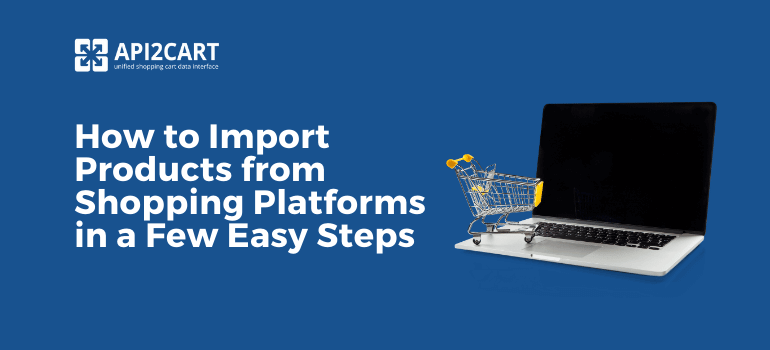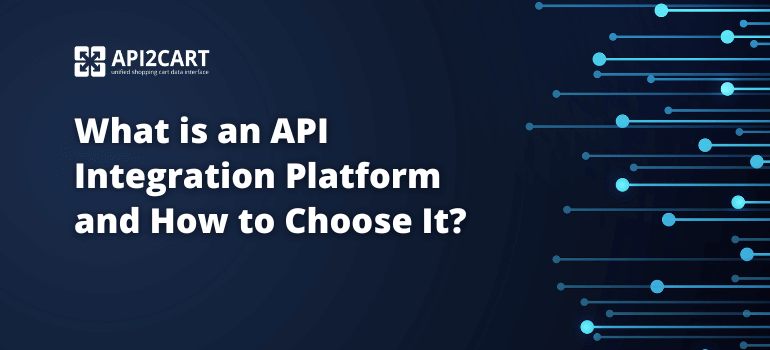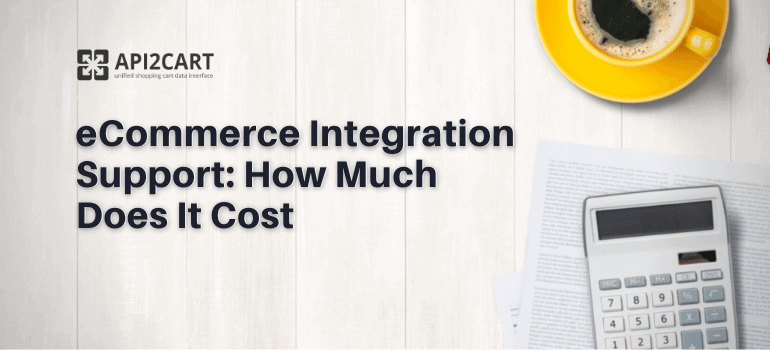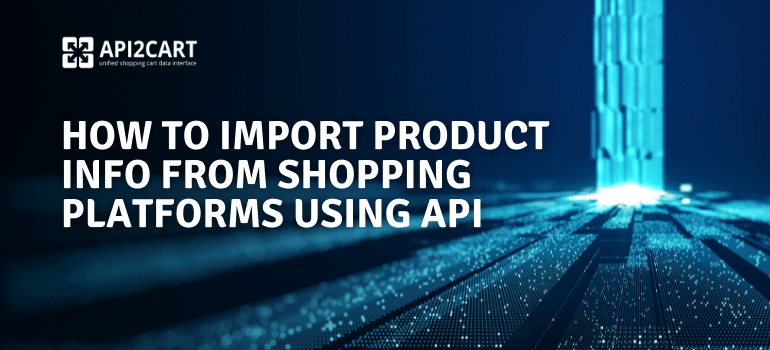
To meet the needs of a growing number of clients, eCommerce software solutions need to be integrated with multiple platforms that merchants use. As most e-merchants create their online stores on various shopping platforms like Magento and Shopify, they must connect to them.
eCommerce integration allows software providers to handle information about products, shipments, orders, and much more of their clients’ online shops. Without such integration, it would be impossible to access the data from clients' online stores quickly.
In this article, we will explore how it is possible to import product info from multiple shopping platforms easily and use such info in your eCommerce software solution.
Why Is It Neccessary to Work With Shopping Platforms’ Data
For many eCommerce B2B software providers, merchants’ e-shops based on various shopping platforms are valuable assets because that is where they get information on products, product categories, prices, and shipping details to run their operations.
That is why many eCommerce software solutions depend on integration with shopping platforms to help online merchants make their businesses more successful and profitable. Information from online stores powers most of the features and processes that such software covers.
For eCommerce software to access all the required data, it must be integrated with various shopping platforms. For example, product information management, ERP, warehouse management, and order and inventory management programs can be integrated with multiple shopping platforms.
The integration with shopping platforms allows software providers to manage, add, delete and update the data related to the products, orders, customers, taxes, prices, and other info retrieved from online stores.
The eCommerce Software That Need Access to Product Info
Multichannel eCommerce Solutions
Multichannel software enables e-merchants to provide a consistent customer experience across multiple sales channels. It allows them to coordinate and control business processes, including inventory management, order fulfillment, shipping management, and listing synchronization from one place.
Such systems need seamless integration with eCommerce platforms. This makes it possible to get data on products, orders, shipments, inventory levels, etc., organize it into data feeds, and update it across all channels.
The access to product info allows such systems to create, manage, and upload product listings to multiple marketplaces (eBay, Amazon, and Etsy) by uploading products with images, titles, descriptions, categories, and more.
Inventory, Order, and Warehouse Management Systems
To facilitate sales, it is critical to maintain a large inventory. Inventory, order, and warehouse management systems help to do this by automating the ordering process and keeping track of inventory.
To fulfill all the functions of their services, such software solutions must have access to their clients' databases. It includes the ability to import product info from various shopping platforms.
Chatbots
Chatbots can provide a means of fostering better shopping experiences and reducing cart abandonment. For example, for an online shop, a chatbot can provide product information, make payment and delivery arrangements, track the status of purchases, and facilitate sales.
To build an eCommerce chatbot that can interact with customers effectively, the bot has to be integrated with multiple shopping platforms and access their data including product info.
Dropshipping Automation Software
Dropshipping software functions are powered by connectivity with online stores. It gathers information on products, orders, categories, and inventory levels; organizes it into data feeds; transfers the feeds to dropshipping systems; and updates the storefronts of all distributors.
Dropshipping API integration with shopping platforms allows such software to perform key functions that dependent on accessing and syncing product info, prices, customers, categories, etc., across different online stores.
How to Import Product Data from Multiple Shopping Platforms Using a Unified API
Two possible options exist to integrate a shopping platform with your software. You can do it on your own, but you will need to establish a connection with each platform separately, taking a lot of your time and resources. Moreover, you will need to take care of integration maintenance and updating as shopping platforms change their API versions all of the time.
You can also use a third-party service, such as API2Cart, that allows you to connect your software to multiple platforms at once.
API2Cart is a service that can connect your eCommerce software solution to 60+ shopping platforms and marketplaces via a single API.
API2Cart allows you to manipulate shopping platforms’ data as you need it. It includes the ability to retrieve, modify, add and update e-store product details, prices, orders, and customers’ info.
API2Cart offers a wide range of API methods that you can use to work with product data.
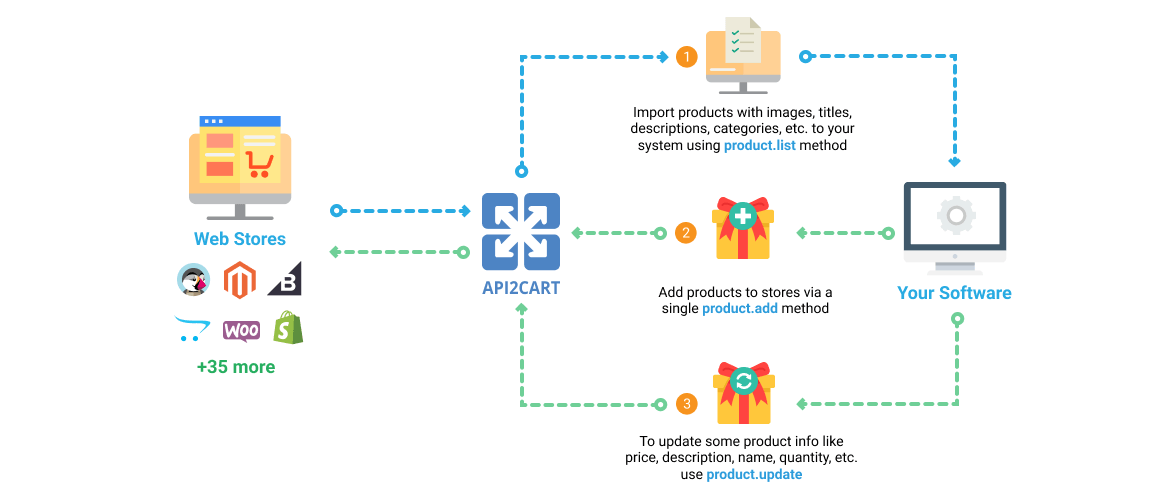
It is possible to use product.list API method to import product info from various shopping platforms. It returns product descriptions, types, prices, sizes, variants, quantities, etc.
You can try this API method by registering your free account on API2Cart. In case you need more detailed information on how API2Cart works, please feel free to contact our managers by chat, email, or phone.
